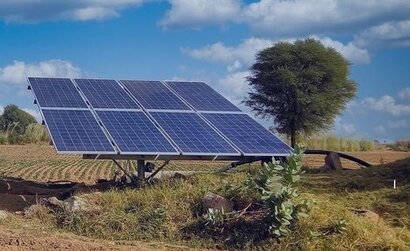
The new mechanism, known as a Distributed Renewable Energy Certificate (D-REC), intends to increase the number of people that have access to clean energy, create new investment and revenue in developing markets, produce clean energy ‘additionality’, and support and amplify global corporate uptake of traceable renewable energy from developing economies.
Existing clean energy attribute certificates, commonly known as ‘Renewable Energy Certificates’ (REC), are an effective and recognised way for businesses to reach mandated or self-set emissions targets. However, they have come under increased scrutiny of late, with some criticising a lack of transparency and proof of impact, amid accusations of greenwashing.
D-RECs differ from existing REC models in several ways. D-REC’s underlying open-source digital ledger technology can validate the source of clean energy in developing markets from distributed, mini-grid projects that support isolated communities or specific infrastructure such as schools and hospitals - providing new traceability and transparency to the opacity found in existing REC structures.
This enables a mechanism for leveraging finance from corporations that are either looking to procure clean energy to reduce Scope 2 emissions or create new sources of clean energy that offset traditional fossil fuel use in specific countries. This finance may then be deployed to create new mini-grid projects or supply revenue to isolated communities already using decentralised solar power.
This novel technological approach, and the transparency in generation, means D-RECs create a wholly new way to certify and value distributed renewable energy. Furthermore, as an open-source tool, D-RECs are a non-proprietary, transparent public good, open to all market players.
Financing off-grid electrification projects is complex. In July 2022, Haitian off-grid developer Alina Enèji scaled up their Okra Solar mesh-grid deployments from 35 to 335 households in Dulagon, Haiti. Funded by OGEF Haiti, it has committed to connecting an additional 700 households, bringing the total to 1,035.
Sale of the project’s D-RECs, via the D-REC platform, has contributed materially to a blended finance solution of grants, debt, and equity, which allowed Alina Enèji to manage cash flow and meet requirements to unlock additional project finance. An early example of how the use of the REC market by distributed energy projects in off-grid communities can change lives.
Over 220 major corporations have committed to 100 percent renewable energy thus far. In 2019, corporates contracted for over 19 GW of new renewable capacity. The global REC market size was valued at $9.3 billion in 2020 and is projected to reach $103.2 billion by 2030.
“This is a complex space and one that we are determined to simplify” said Gian Autenrieth, Co-Lead, D-REC Initiative. “We want communities in developing nations to reap the benefits of investment in renewable energy projects, to increase the amount of renewable energy available worldwide, and for businesses globally to be incentivised, through certified, trusted instruments, to purchase renewable electricity to meet their ESG goals and power their businesses. Our work in Haiti is a prime example of how we can deliver real positive change through creating a mechanism to validate the origin of distributed renewable energy production, enabling us to catalyse finance for expansive clean energy development that makes a real difference to communities living in energy poverty.”
There are several benefits to be derived from D-RECs:
New sources of revenue and improved unit economics for DRE projects
Improved economics for Results Based Financing (RBF) programmes
New mechanisms for corporates to achieve Scope 2 and 3 targets and secure verifiable impacts from ESG investments
New ways to measure and monetise other environmental and social benefits, such as carbon, energy access, and other Sustainable Development Goals (SDGs)
Accelerated deployment of DRE in emerging markets
For additional information:

